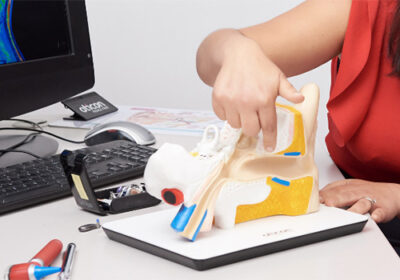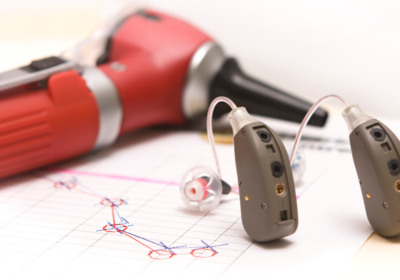What comes to mind when you think of healthy ageing? A tai chi class in the park? Volunteering your time and skills in the community? Finally learning French or taking up pottery? New experiences and travel?
Physical activity, a healthy diet, making a meaningful contribution to the world and keeping your mind active are all important elements of healthy ageing. But there’s another crucial factor that’s often overlooked.
That’s protecting your hearing. Why? Because research shows there’s a strong link between untreated hearing loss and dementia.
What is dementia?
Dementia is a group of symptoms that can cause progressive memory loss, confusion, behaviour change and loss of ability to manage daily activities. Dementia can happen at any age but becomes more common after the age of 65.
Are hearing loss and dementia related?
There are many different risk factors for dementia but we now know that one of the most significant is the quality of your hearing.
A landmark study led by researchers at Johns Hopkins University tracked 639 adults for 12 years. Its findings were stark. Mild hearing loss doubled dementia risk. Moderate hearing loss tripled the risk. And severe hearing loss increased dementia risk by 5 times.
How does hearing loss affect your brain?
Hearing is a complex, intricate process that involves your brain as well as your ears. Many parts of your ear work together to turn sound waves into messages your brain interprets as sound, enabling you to understand speech and engage in social or professional life.
Poor hearing makes your brain work harder. Every time someone speaks, you have to concentrate harder to interpret what they’re saying. Every time you go out for lunch in a cafe, you have to use immense focus to drown out the background noise so you can hear the conversation at your table. Every time you sit down for a family movie night and you throw on the captions, you’re putting in extra effort to read the dialogue as well as listen to it.
When you get overloaded at work, you probably don’t get around to cleaning up the kitchen. It’s similar for your brain when it’s working overtime to hear. It has to devote more and more of its resources to trying to hear. That means it neglects other important tasks such as your working memory, which can accelerate cognitive decline.
Untreated hearing loss can also negatively affect your relationships and social activities. It may make you more lonely, depressed and reliant on others. Those are all risk factors for dementia.
What can you do?
Some changes in your ears are natural parts of ageing. That said, there are many things you can do to promote healthy hearing as you age, such as:
- Avoiding or reducing the use of ototoxic medicines (medicines with side effects that may damage hearing)
- Limiting your exposure to loud noise – wear ear protection if you’re using or surrounded by loud machinery
- Recognise the signs of hearing loss, which include:
- Difficulty hearing in background noise
- Difficulty understanding speech
- Needing to see people’s mouths to interpret their words
- Asking people to repeat themselves
- Feeling like sounds are muffled or people are always mumbling
- Turning the TV up louder than other people need it
- Failing to hear the doorbell or phone
- Noticing a buzzing in your ears.
- Get a hearing test
- Treat any hearing loss according to your audiologist’s recommendations.
How do hearing aids help?
Hearing aids improve your hearing. They also benefit your brain and may help protect against cognitive decline.
When there’s nothing stimulating your auditory nerve and no sound signals being sent to your brain, your brain gradually forgets sounds leading to atrophy.
When you start using hearing aids, you reboot your hearing system, supplying signals to your brain once more, helping it to stay fit and active.
How can Active Audiology help?
If you’re experiencing symptoms of hearing loss or symptoms of dementia, then please contact us to book a hearing test.
Our university-trained and experienced audiologists will conduct a thorough assessment of your hearing then talk through the findings and recommendations with you. It could be one of the most important steps you take towards a healthy, active older age.
Disclaimer
All information is general in nature.




